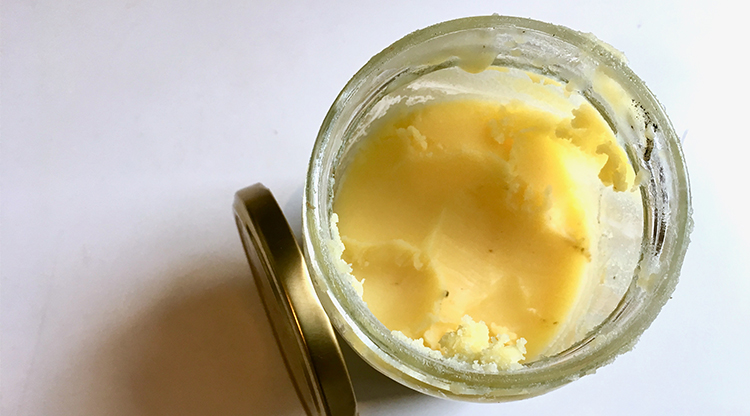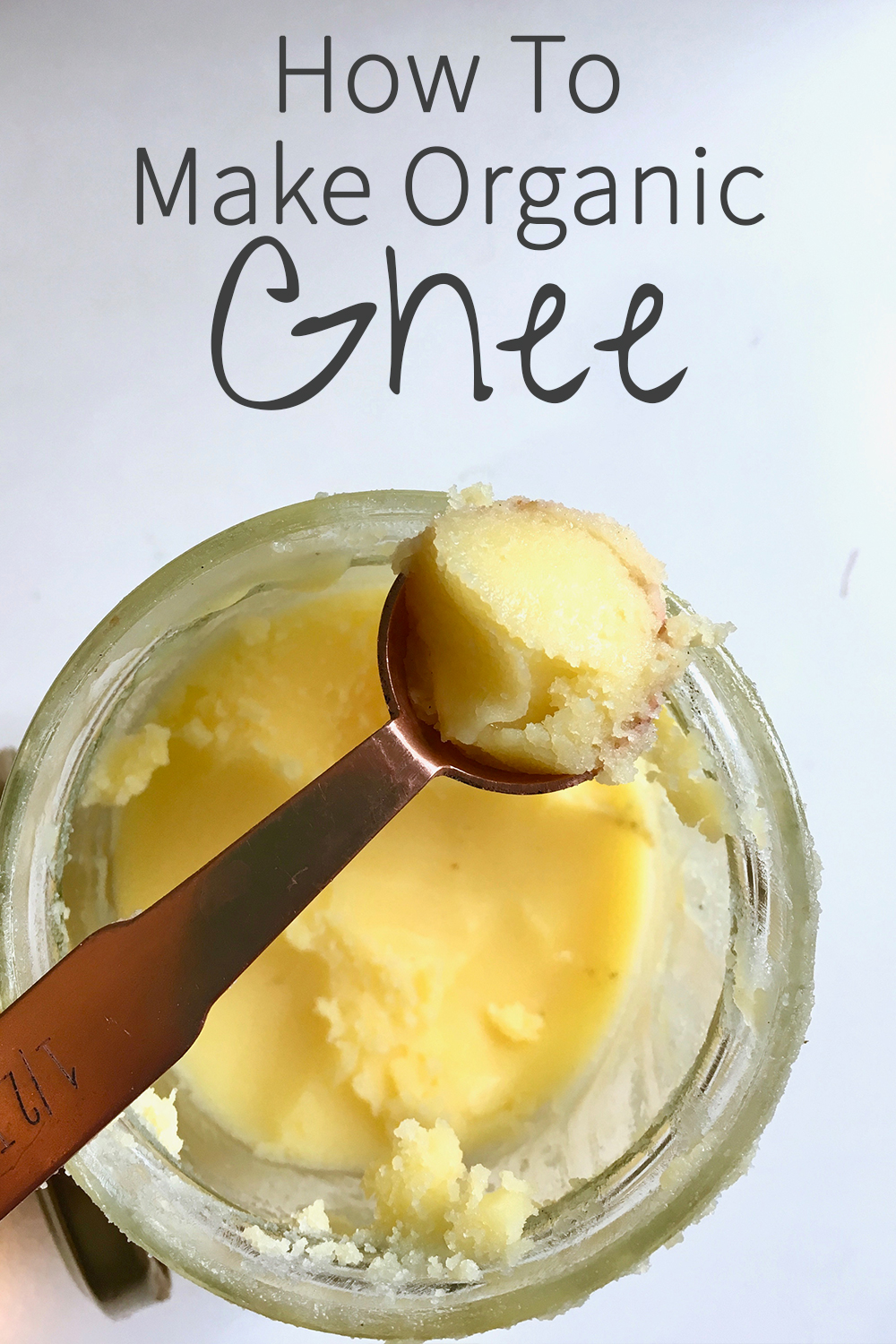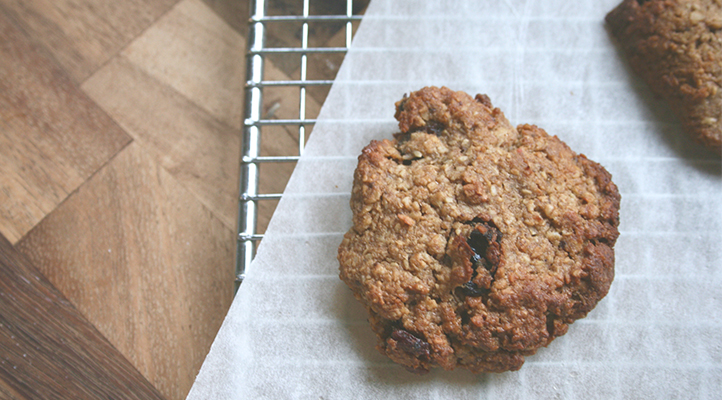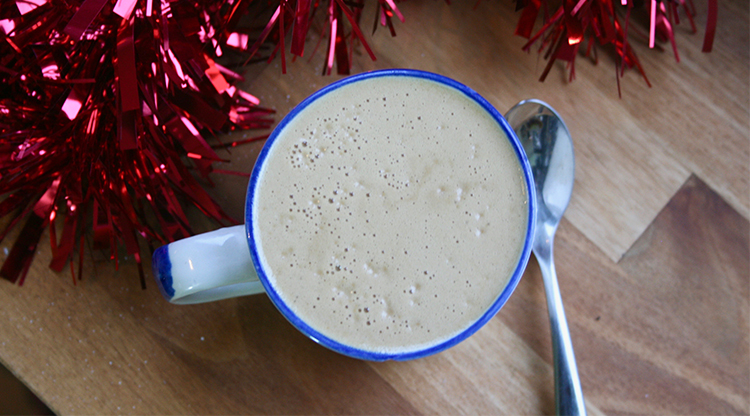If we don’t know each other very well yet then you might not know this about me.
I am ALL about the fat.
Long gone are my fat phobic days, full of fat-free yogurt, low-fat margarine and avoiding avocados due to the calories/syns/points value.
Fat now equals good.
And a question I get asked a lot about is ‘what kind of fat should I cook with?‘ Most people use olive oil or maybe some (*cough* high processed crap filled) ‘light‘ spray and steer clear of things like butter, lard or goose fat.
But quality, natural, saturated fats are some fo the BEST things to cook with and here is why.
Saturated fats molecular structure is whole and complete. When you add energy in the form of heat nothing changes, other than it melts and becomes liquid. But with say, olive oil, for example, its molecular structure is less stable as a polyunsaturated fat, which means it has electrons looking for its ‘mate‘ (that not a scientific term just an analogy that I like). So when you add heat to olive oil you’re essentially providing it with ‘the love of its life‘ and therefore it change the molecular structure of the fat itself.

Basically, this means that you do not, I repeat do not, what to be heating fats like olive oil, sunflower oil, vegetables oil or any other plant based oil (other than coconut) to super hot temperatures because you change the molecular structure and make it less beneficial. Because when it come to biochemistry the shape of a molecule hugely impacts how it interacts with the body, so these ‘morphed’ new structures of fat are more harmful than good.
We really want to be cooking with things like coconut oil or organic lard or other animal fat or ……ghee.
Ghee is a stable saturated fat, often used in indian style cooking, that has all the benefits of high-quality dairy products (think vitamin A, D, calcium etc) without the lactose, or with very very minimal amounts. Most people that are intolerant to dairy feel fine using this and its much cheaper than coconut oil plus doesn’t leave that coconut flavour that not everyone enjoys.
I LOVE ghee and I know it not popular to be into dairy but IF you can tolerate lactose and casein well, then organic ideally raw dairy is a fabulous source of nutrients for the body. Now not everyone can handle consuming milk, cheese, yogurt, and butter (although they will probably tolerate ghee fine even if they don’t tolerate these other foods well) and if you have massive skin or digestive issues then you’re probably better without it. But if you have no major health issues then feel free to enjoy some quality dairy. Hooray.
My only caveat though is always go for organic, and if you can, unpasteurized and unhomogenized, as you get way more nutrients and the animal are often respected and well looked after and not forced to remaining constantly pregnant in order to produce milk.
So if you sick of paying for pricey coconut oil or just hate the taste of coconut then make ghee your BFF.
And if you do indeed have some digestive issues, maybe IBS that is driving you mad, or reflux that won’t seem to disappear then make sure you click below to join me for my FREE Belly Bliss Bootcamp!
>>> Click here to join the Bootcamp!

Homemade Organic Ghee
Ingredients
- 750 g unsalted organic butter
Instructions
- 1. Place the butter, roughly chopped, into a pan on a low heat and allow to melt.
- 2. Once melted bring to a simmer.
- 3. Once the butter has foamed with should start to curdle/separate after about 10 mins. Just keep it on a low heat and no need to stir.
- 4. Once the liquids looks like it has separated the allow to simmer for another 5 mins on gentle heat – do keep an eye on it doesn't start to catch.
- 5. Then take a metal sieve and cover with some muslin cloth over a large glass bowl or jug. Then pour the hot liquid into sieve and allow all the liquid to strain through.
- 6. Throw the butter residue in the bin and you should be left with a clear it orangey liquid.
- 7. Pour this liquid into your storage container (I used an old coconut jar that I had washed) and allow to cool.
- 8. Store at room temp or in fridge and it should keep for a over a month is not contaminated with other foods.
Notes
Always try to get organic – it means you don't get the hormones or drug residues that they give normal cows. Its always important to consume organic animal products where possible as fat is where we mammals store toxins. Adapted from Nom Nom Paleo





Why is Ghee better than just using organic butter to cook with? x
Yes as it has a higher cooking point – butter will burn quite quickly when cooking when ghee wont so much.